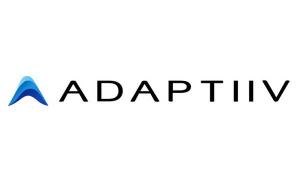Adaptiiv Medical Technologies Inc., the Halifax company that uses 3D printing to improve cancer treatment, has further extended its international reach by partnering with Italian peer Eckert & Ziegler BEBIG, or EZB.
EZB specializes in products used in brachytherapy, which applies radioactive sources directly to or into tumors while sparing the surrounding healthy tissue. For the patient, this means shorter treatment periods, fewer side effects and a faster recovery.
The two companies announced Sunday they will test and align their systems to provide an integrated workflow for cancer centers to create 3D-printed brachytherapy applicators customized to each patient. They believe the collaboration will demonstrate that 3D printing can provide clinically viable solutions that improve treatment and patient care.
"This is a significant milestone for us," said Adaptiiv CTO Alex Dunphy in the press release. "Collaborating with the team at EZB has allowed us to continue to make significant strides towards improving the standard of care using a patient-specific approach in brachytherapy. The successful alignment of our systems will demonstrate that 3D printing can be used to provide a clinically viable solution in brachytherapy treatment.”
Last year, Adaptiiv became the first company in the world to receive US FDA 510(k) clearance for software that is intended to 3D print patient-specific medical devices for use in radiation oncology.
Metamaterial Technologies Developing MedTech in London
The Adaptiiv system 3D prints a bolus – a piece of plastic placed over the cancerous area. The radiation hits the bolus, builds up and then is transferred into the tumour.
There can be no air pockets between the bolus and the skin, which complicates matters given that every body is unique. Hospitals using the Adaptiiv product buy a system that includes 3D printers with special filaments, so boluses customized to each patient can be printed within seconds. They can be reused as the patient receives repeated radiation dosages. Or, if the patient’s body shape changes over the course of multiple treatments, the medical staff can print off another bolus quickly.
Adaptiiv said its solution represents a step further in enabling patient-specific care by increasing the clinical acceptance and implementation of 3D printing at the point-of-care.
The Halifax company has struck several partnerships in the past year. In February, Adaptiiv partnered with leading Canadian cancer facility Centre Hospitalier de l’Université de Montréal, and last October it announced University of Hong Kong had become both a customer and research partner.
“We are excited to collaborate with Adaptiiv and its turnkey solution for 3D printing medical accessories,” said Thomas Osche, Product Manager at EZB. “Adaptiiv is the first company to offer a platform that seamlessly integrates into existing treatment workflows and their team has demonstrated the ability to rapidly validate new approaches to treatment that are being used in a clinical setting.”










